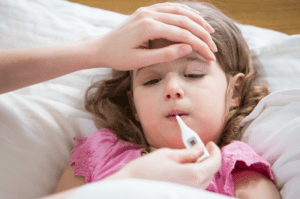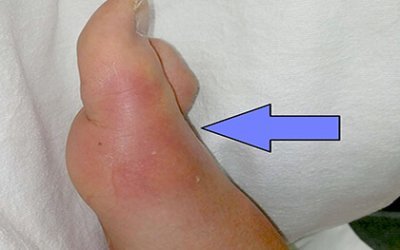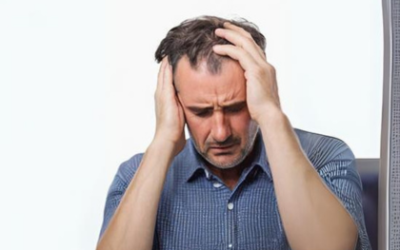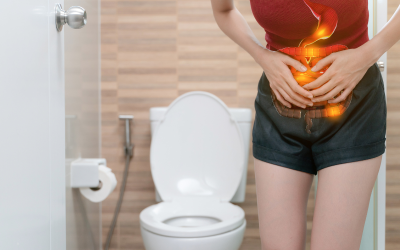Ways to Manage Anxiety Naturally
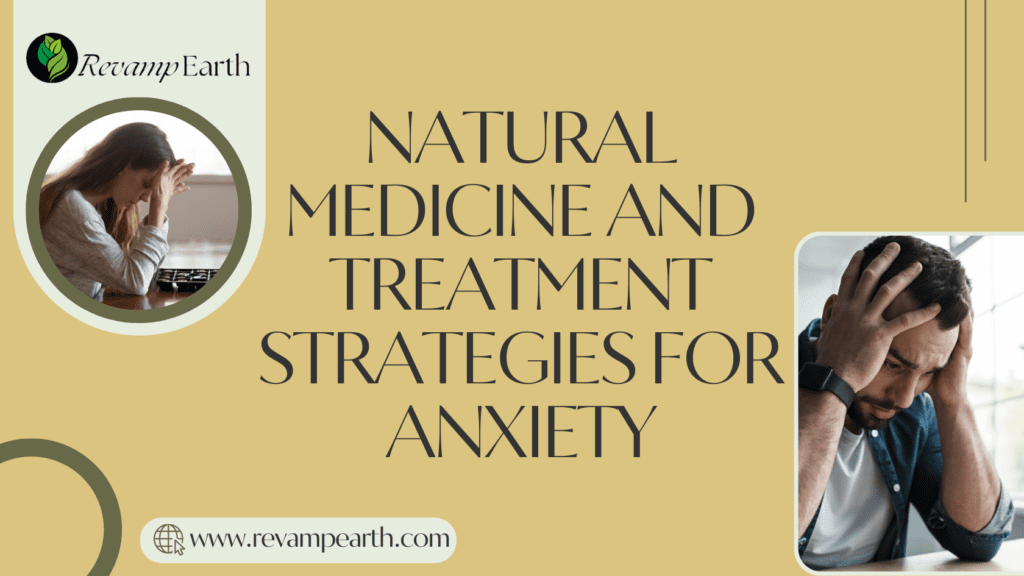
Anxiety is a common mental health condition that affects millions of people worldwide. It is characterized by feelings of fear, worry, and unease, often accompanied by physical symptoms such as increased heart rate, sweating, and trembling. While occasional anxiety is a normal part of life, excessive and persistent anxiety can have a significant impact on a person’s overall well-being. In this blog post, we will explore the causes, complications, management strategies, and herbal remedies for anxiety.
Causes of Anxiety
Anxiety can have various causes, including:
Genetics: Some individuals may have a genetic predisposition to anxiety disorders.
Brain Chemistry: Imbalances in certain neurotransmitters, such as serotonin and dopamine, can contribute to anxiety.
Environmental Factors: Traumatic events, chronic stress, and a history of abuse or neglect can increase the risk of developing anxiety.
Medical Conditions: Certain medical conditions, such as thyroid disorders or heart disease, can trigger or worsen anxiety symptoms.
Substance Abuse: Alcohol, drugs, and even caffeine can exacerbate anxiety.
Complications of Anxiety
Untreated or poorly managed anxiety can lead to various complications, including:
Impaired Daily Functioning: Anxiety can interfere with a person’s ability to perform daily tasks, such as work or social activities.
Depression: Chronic anxiety can increase the risk of developing depression.
Sleep Disorders: Anxiety often disrupts sleep patterns, leading to insomnia or other sleep disorders.
Substance Abuse: Some individuals may turn to alcohol or drugs as a way to self-medicate their anxiety symptoms.
Physical Health Issues: Chronic anxiety has been associated with an increased risk of conditions such as heart disease, gastrointestinal problems, and weakened immune system.
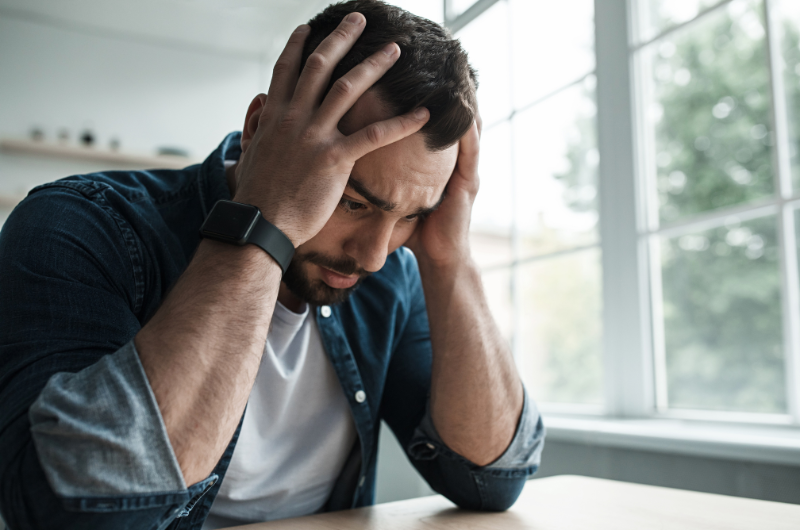
Management Strategies for Anxiety
Fortunately, there are several effective strategies for managing anxiety:
Therapy: Cognitive-behavioral therapy (CBT) is a widely used therapy that helps individuals identify and change negative thought patterns and behaviors associated with anxiety.
Medication: In some cases, medication may be prescribed to help manage anxiety symptoms. These may include selective serotonin reuptake inhibitors (SSRIs), benzodiazepines, or beta-blockers.
Lifestyle Changes: Engaging in regular exercise, practicing relaxation techniques (such as deep breathing or meditation), getting enough sleep, and avoiding excessive caffeine or alcohol can all contribute to reducing anxiety.
Support Network: Building a strong support network of friends, family, or support groups can provide emotional support and understanding.
Stress Management: Learning effective stress management techniques, such as time management and setting boundaries, can help reduce anxiety levels.
Herbal Remedies for Anxiety
In addition to conventional management strategies, some individuals turn to herbal remedies for anxiety relief. It is important to note that herbal remedies should be used with caution and under the guidance of a healthcare professional. Some commonly used herbal remedies for anxiety include:
Chamomile: Chamomile is a popular herb known for its calming properties. It can be consumed as a tea or taken in supplement form.
Lavender: The scent of lavender has been shown to have a calming effect. It can be used in essential oil form or added to bathwater.
Valerian Root: Valerian root is often used as a natural remedy for anxiety and sleep disorders. It can be taken as a supplement or consumed as a tea.
Passionflower: Passionflower has been used traditionally to reduce anxiety and promote relaxation. It is available in supplement form.
Lemon Balm: Lemon balm is a member of the mint family and has been used for centuries to reduce anxiety and improve mood.
It is important to remember that while herbal remedies may provide some relief for mild anxiety symptoms, they are not a substitute for professional medical advice and treatment. Always consult with a healthcare professional before starting any herbal remedies.
Conclusion
Anxiety is a complex mental health condition that can have a significant impact on a person’s life. Understanding its causes, complications, and management strategies is crucial for effective treatment. While herbal remedies may offer some relief, it is important to seek professional guidance and explore a comprehensive approach to anxiety management. By addressing anxiety with a combination of therapy, medication (if necessary), lifestyle changes, and support, individuals can take control of their mental health and improve their overall well-being.
References
- J. K. Trivedi and Pawan Kumar Gupta. (2010) An overview of Indian research in anxiety disorders. National Center for Biotechnology Information. View
- Alexander Bystritsky, MD, PhD, Sahib S. Khalsa, MD, PhD, Michael E. Cameron, PhD, and Jason Schiffman, MD, MA, MBA. (2013) Current Diagnosis and Treatment of Anxiety Disorders. National Center for Biotechnology Information. View
- H.K.Bakhru (1992) Herbs That Heal: Natural Remedies for Good Health. Orient Paperbacks. Delhi, India.
- T.V.Sairam (1999) Home Remedies Vol-II: A Handbook of Herbal Cures for Common Ailments. Penguin Books India.
Dos
Practice Deep Breathing: Engage in deep, slow breaths to calm your nervous system. Inhale deeply through your nose, hold for a few seconds, and exhale slowly through your mouth.
Stay Active: Regular exercise can boost mood and reduce anxiety. Incorporate activities you enjoy, whether it’s a brisk walk, yoga, or dancing.
Talk About It: Share your feelings with a trusted friend, family member, or therapist. Opening up can provide emotional support and different perspectives.
Establish a Routine: Create a daily schedule to bring structure to your day. Consistency can help reduce feelings of unpredictability.
Mindful Practices: Explore mindfulness techniques like meditation and grounding exercises to stay present and manage anxious thoughts.
Don’ts
Avoidance: Resist the urge to avoid situations that trigger anxiety. Gradually facing these situations can help desensitize your response over time.
Excessive Caffeine or Alcohol: Limit intake of stimulants like caffeine and alcohol, as they can exacerbate anxiety symptoms. Opt for herbal teas or decaffeinated options.
Negative Self-Talk: Challenge negative thoughts and avoid self-criticism. Replace negative self-talk with positive affirmations and realistic perspectives.
Overcommitting: Be mindful of your commitments. Avoid overloading your schedule, and prioritize self-care to prevent burnout.
Isolation: While it’s tempting to withdraw during anxious moments, isolation can worsen feelings of loneliness. Seek connection and support from others.
Send Us A Message
FAQs
- Anxiety can manifest in various ways, including excessive worrying, restlessness, irritability, rapid heartbeat, difficulty concentrating, sweating, trembling, and sleep disturbances.
- Anxiety can stem from a combination of genetic, environmental, and psychological factors. Stressful life events, trauma, medical conditions, and certain medications can also contribute to anxiety.
- Managing anxiety involves establishing healthy habits such as regular exercise, practicing mindfulness or meditation, maintaining a balanced diet, and avoiding excessive caffeine and alcohol. Deep breathing exercises and journaling can also help.
- If your anxiety is interfering with your daily life, work, or relationships, or if you are experiencing panic attacks, it's important to seek professional help. Early intervention can lead to better outcomes and prevent the condition from worsening.






